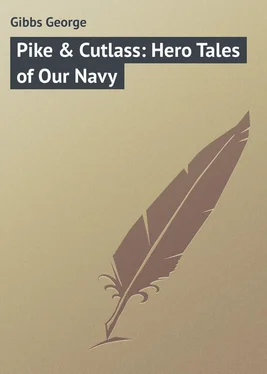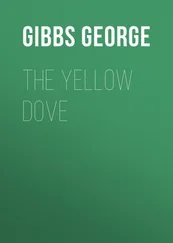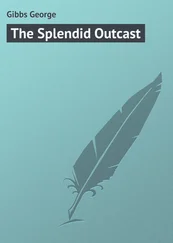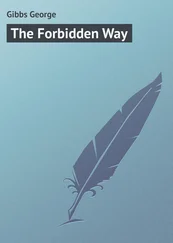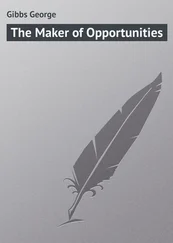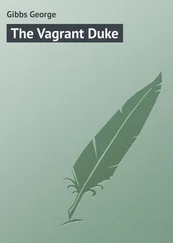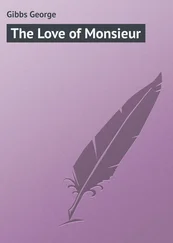George Gibbs - Pike & Cutlass - Hero Tales of Our Navy
Здесь есть возможность читать онлайн «George Gibbs - Pike & Cutlass - Hero Tales of Our Navy» — ознакомительный отрывок электронной книги совершенно бесплатно, а после прочтения отрывка купить полную версию. В некоторых случаях можно слушать аудио, скачать через торрент в формате fb2 и присутствует краткое содержание. ISBN: , Жанр: foreign_prose, на английском языке. Описание произведения, (предисловие) а так же отзывы посетителей доступны на портале библиотеки ЛибКат.
- Название:Pike & Cutlass: Hero Tales of Our Navy
- Автор:
- Жанр:
- Год:неизвестен
- ISBN:http://www.gutenberg.org/ebooks/42138
- Рейтинг книги:3 / 5. Голосов: 1
-
Избранное:Добавить в избранное
- Отзывы:
-
Ваша оценка:
- 60
- 1
- 2
- 3
- 4
- 5
Pike & Cutlass: Hero Tales of Our Navy: краткое содержание, описание и аннотация
Предлагаем к чтению аннотацию, описание, краткое содержание или предисловие (зависит от того, что написал сам автор книги «Pike & Cutlass: Hero Tales of Our Navy»). Если вы не нашли необходимую информацию о книге — напишите в комментариях, мы постараемся отыскать её.
Pike & Cutlass: Hero Tales of Our Navy — читать онлайн ознакомительный отрывок
Ниже представлен текст книги, разбитый по страницам. Система сохранения места последней прочитанной страницы, позволяет с удобством читать онлайн бесплатно книгу «Pike & Cutlass: Hero Tales of Our Navy», без необходимости каждый раз заново искать на чём Вы остановились. Поставьте закладку, и сможете в любой момент перейти на страницу, на которой закончили чтение.
Интервал:
Закладка:
Without a second’s pause the crew of the “Enterprise,” to a man, stepped out; then, fearful lest others should get in the front rank, came towards the young commander in a body, elbowing and swearing at one another lustily.
Decatur smiled. With such a spirit there was nothing he might not accomplish. He picked out sixty-two of his youngest and steadiest men, each of them touching his tarry cap with a grateful “Thank’ee, sir,” as Decatur called his name.
That afternoon they tumbled joyfully down into a captured ketch, which had been named the “Intrepid,” and, stores aboard, hoisted their three-cornered sail for the harbor of Tripoli. As they hauled off, Decatur went below to see that all his supplies and combustibles were stored, when Midshipman Lawrence came towards him somewhere from the depths of the fore-hold, pushing along by the scruff of the neck a youngster, who was crying bitterly.
“I found this stowaway, sir,” said Lawrence, with a smile.
“Please, sir,” sobbed the boy, “don’t send me back. I want to see this ’ere fight, and I ain’t going to do no harm. Don’t send me back, sir.”
Decatur had looked up with a fierce frown, but the anxiety on the lad’s face was pathetic, and he smiled in spite of himself.
“You can go,” he laughed, “but I’ll put you in the brig – when we get back.”
On that six days’ voyage to Tripoli the wind blew a hurricane, and the masquerade of the American tars seemed likely to end in disaster, without even a fight for their pains. But as they sighted the coast the sea went down, and the arrangements were completed. The yellow sails of the “Siren,” their consort, hove again into sight, and by the afternoon of the 16th of February the two vessels were bearing down upon the dark line that lay shimmering purple under the haze of the southern sky.
The sun dropped down, a ball of fire, into the western sea, and by eight o’clock the towers of the bashaw’s castle loomed dark against the amber of the moonlit sky. To the left the stately spars of the doomed frigate towered above the rigging in the harbor, and floating at her truck was the hated insignia of the enemy.
The piping northern breeze bellied the crazy sail of the ketch and sent the green seas swashing under the high stern, speeding them good luck on their hazardous venture. Catalano, the pilot, stood at the helm, swinging the clumsy tiller to meet her as she swayed. By his side was a tall figure, a white burnoose about his shoulders and a fez set jauntily on his head – Decatur. Four others, in unspeakable Tripolitan costumes, lounged about the deck or squatted cross-legged. But the delusion went no further. For one of them, Reuben James, was puffing at a stubby black pipe, and another spat vigorously to leeward. The others were below, lying along the sides, sharpening their cutlasses.
On they sped, Catalano heading her straight for the frigate. As the harbor narrowed and the black forts came nearer, they could see the dusky outlines of the sentries and the black muzzles that frowned on them from the battlements. Over towards the east faint glimmers showed where the town was, but the wind had now fallen low, and the lapping of the water along the sides alone awoke the silence. A single light shone from the forecastle of the frigate, where the anchor watch kept its quiet vigil. She swung at a long cable, a proud prisoner amid the score of watchful sentinels that encircled her.
As placid as the scene about him, Decatur turned to the pilot and gave a low order. The helm was shifted and the tiny vessel pointed for the bowsprit of the “Philadelphia.” Nearer and nearer they came, until scarcely a cable’s length separated them. They saw several turbaned heads, and an officer leaned over the rail, puffing lazily at a cigarette. He leisurely took the cigarette from his mouth, and his voice came across the quiet water of the harbor, —
“Where do you come from?” he hailed.
Catalano, the pilot, answered him in the lingua Franca of the East, —
“The ketch ‘Stella,’ from Malta. We lost our anchors and cables in the gale, and would like to lie by during the night.”
The Tripolitan took another puff, and an ominous stir, quickly silenced, was heard down in the hold of the ketch. It seemed an eternity before the answer came, —
“Your request is unusual, but I will grant it,” said the Tripolitan, at last. “What ship is that in the offing?”
The officer had seen the “Siren,” which hovered outside the entrance of the harbor.
“The British ship ‘Transfer,’” said Catalano, promptly.
The ketch was slowly drifting down until a grappling-iron could almost be thrown aboard. Right under the broadside she went, and a line of dark heads peered over the rail at her as she gradually approached the bow.
The chains of the frigate were now almost in the grasp of Reuben James, on the forecastle, when the wind failed and a cat’s-paw caught the ketch aback. Down she drifted towards the terrible broadside. But at a sign from Decatur the eager Lawrence and James got into a small boat and carried a line to a ring-bolt at the frigate’s bow. A boat put out from the “Philadelphia” at the same time. But Lawrence coolly took the hawser from the Tripolitan – “to save the gentleman trouble,” he explained – and brought it aboard the “Intrepid.” A moment more, and the ketch was warping down under the “Philadelphia’s” quarter. It was a moment of dire peril. The slightest suspicion, and they would be blown to pieces.
Decatur leaned lightly against the rail, but his hand grasped his cutlass under his robe so that the blood tingled in his nails and his muscles were drawn and tense. Morris and Joseph Bainbridge stood at the rigging beside him, trembling like greyhounds in leash.
Suddenly they swung around and shot out from under the shadow into a yellow patch of moonlight. The watchful eyes above the rail saw the anchor and cables and the white jackets of the sailors below decks as they strove to hide themselves in the shadows. One glance was enough. In an instant the ship resounded with the thrilling cry, “Americano! Americano!”
At the same moment the “Intrepid” ground up against the side of the frigate. In an instant, as if by magic, she was alive with men. Throwing off his disguise, and with a loud cry of “Boarders, away!” Decatur sprang for the mizzen-chains. And now the hot blood of fighting leaped to their brains. The long agony of suspense was over. Lawrence and Laws sprang for the chain-plates and hauled themselves up. Decatur’s foot slipped, and Morris was the first on deck. Laws dashed at a port, pistols in hand. Nothing could withstand the fury of the charge, and over the rail they swarmed, cutlasses in teeth, jumping over the nettings, and down on the heads of the Tripolitans below. Though Morris was first on deck, Decatur lunged in ahead of him, bringing down the Tripolitan officer before he could draw his sword. One of them aimed a pike at him, but he parried it deftly, and Morris cut the fellow down with a blow that laid his shoulder open from collar to elbow.
Though surprised, the Tripolitans fought fiercely. They had won their title of “the best hand-to-hand fighters in the world” in many a hard pirate battle in the Mediterranean. Around the masts they rallied, scimetars in hand, until they were cut or borne down by the fury of their opponents.
After the first order, not a word was spoken and not a shot was fired. The Americans needed no orders. Over the quarter-deck they swept – irresistible, clearing it in a trice. Overwhelmed by the fierce onslaught, the Tripolitans fled for life, the sailors driving them up on the forecastle and overboard in a mass, where their falling bodies sounded like the splash of a ricochet.
Читать дальшеИнтервал:
Закладка:
Похожие книги на «Pike & Cutlass: Hero Tales of Our Navy»
Представляем Вашему вниманию похожие книги на «Pike & Cutlass: Hero Tales of Our Navy» списком для выбора. Мы отобрали схожую по названию и смыслу литературу в надежде предоставить читателям больше вариантов отыскать новые, интересные, ещё непрочитанные произведения.
Обсуждение, отзывы о книге «Pike & Cutlass: Hero Tales of Our Navy» и просто собственные мнения читателей. Оставьте ваши комментарии, напишите, что Вы думаете о произведении, его смысле или главных героях. Укажите что конкретно понравилось, а что нет, и почему Вы так считаете.
